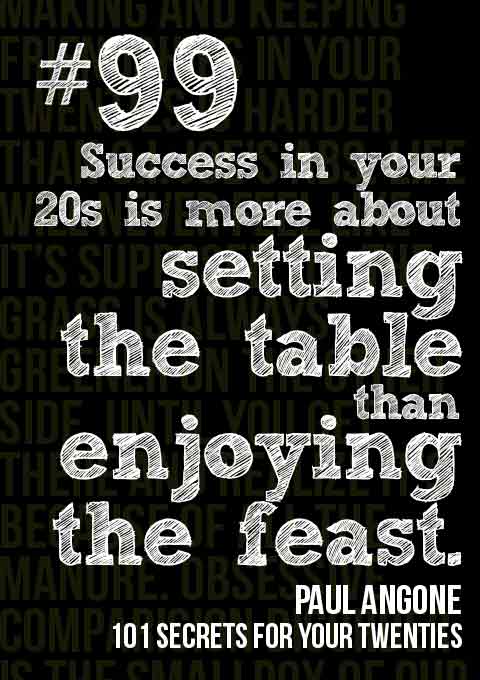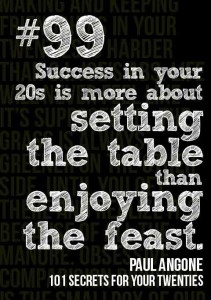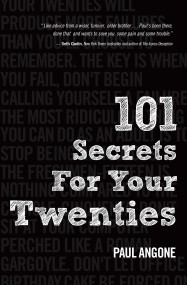After a breakup once, I hugged my knees on a living room recliner and watched sitcoms through teary eyes.
And according to readers, the best parts of being single are…
…being free to come and go as I please. -Mary
…saving money. -Caleb
…being able to focus on school and my relationship with God without any distractions. -B-Ran
…being a loner when you feel like it. Also, meeting new people when getting set up. -Greg
…not having to shave every day. -Shawn
…not having to give explanations. -Carlos
…using coupons when you go out to eat. -Abraham
… making your own schedule. -Dan
…going out with the guys. -Anthony
…having opportunities to be spontaneous and travel different places on a whim. -Kelsey
…fulfilling my (current) life purpose effectively. -Discipulae
…having time for God and reflection -John
…the free-ness to serve others, because you have nothing tying you down -Pedro
…the having no pressure! -Angel
…time to read. Excessively. -Goo
…being able to marathon bad reality TV with no one to judge you! -MCN
…Spontaneity! -Jen
…drinking out of a milk carton. -Mario
…being able to fix myself instead of “fixing” someone else. -Julie
…having the time to help and share my time with others! -Ce
…having the freedom to go on random adventures without having to check someone else’s schedule! -Aimee
…saying yes to the craziest ideas, whether study, travel or just a night out. -Laura
…prioritizing my immediate family. -Julie
…knowing more people on a deeper level. -John
…detachment from worldly and sensible things, more focus on God.? -Jason
…flirting. -Anthony
…not having to put the seat down. -Trish
…sleeping alone. -Michelle
…more time can be devoted to ministry work.? -Nathan
…you still have time to change. -Daniel
…being able to do God’s work. – P Edward
…figuring out who I am. -Marybeth
– – – –
What are your best parts of being single?





